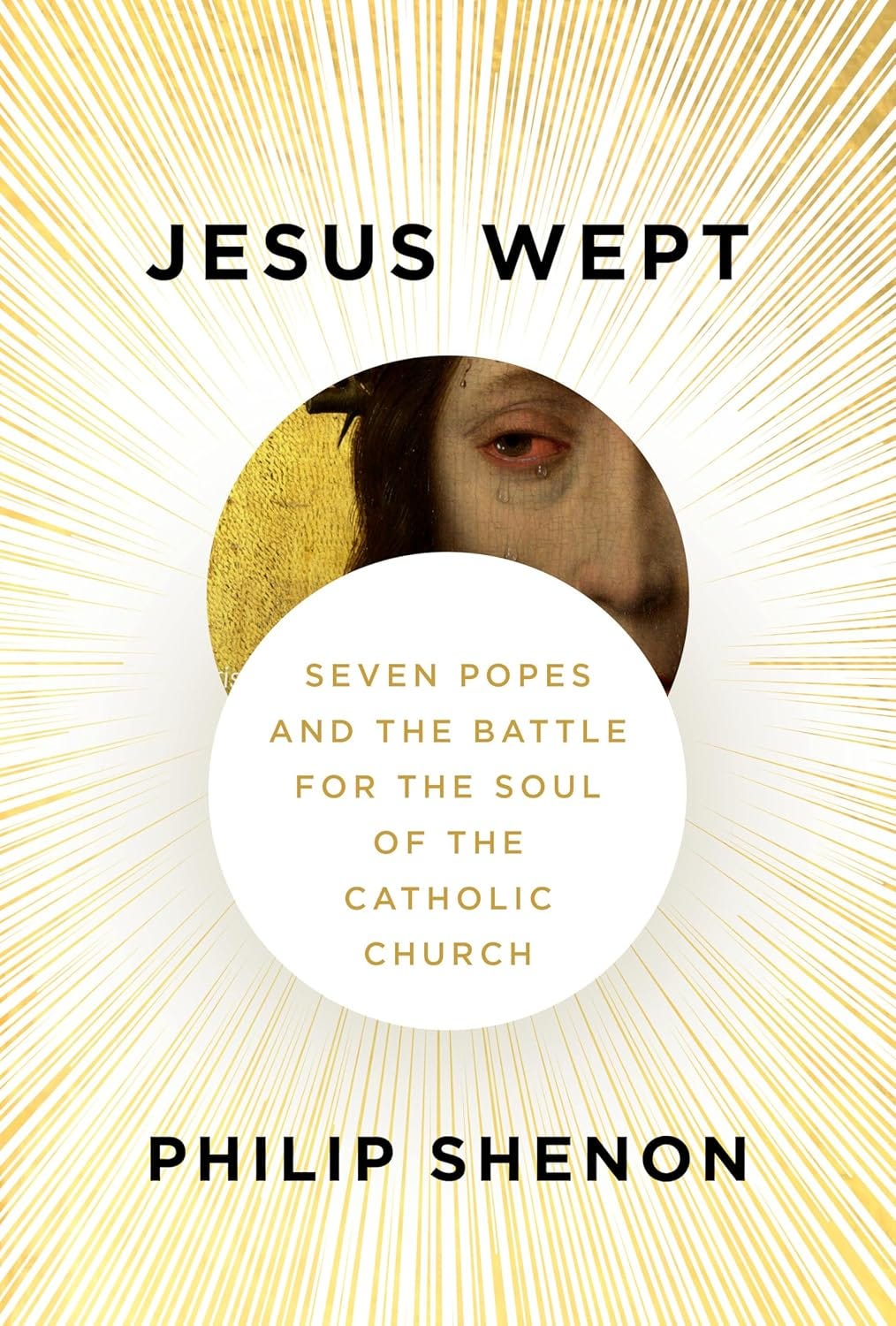Papa Americanus Habemus, and it’s not this guy. I’m sure there will be lots of instant experts on what Pope Leo XIV should do. And aware that I’m an interloper since my sect split from Rome 500 years ago, I do have some observations and hopes for the new Pope (and for Christian institutions in general) regarding the Church’s struggles in fighting child abuse.
I just finished reading Philip Shenon’s 2025 recent history Jesus Wept: Seven Popes and the Battle for the Soul of the Catholic Church. Shenon gives a fascinating history of the Church over the past 75 years, demonstrating both the good that Popes have accomplished and their failures. Among those failures were, unfortunately, multiple opportunities by multiple Popes and church officials to deal with widespread and ongoing cases of child sexual abuse by priests, bishops, and even cardinals.
This column won’t delve into the particulars, as those have been covered extensively elsewhere. What I found most interesting in Shenon’s reporting is just how similar the Church’s child safeguarding failures have been to similar failures among Protestant denominations and secular organizations with missions to serve the poor and the vulnerable. What struck me most from Jesus Wept was how the failure of Popes, Cardinals, and Bishops to hold pedophile priests accountable can be attributed to three main factors: (1) misplaced mercy; (2) cognitive dissonance; and (3) hubris.
Shenon’s reporting demonstrates how successive Popes, from John Paul II through Pope Francis, justified not addressing rampant reports of child sexual abuse. In many situations, pedophile priests and other clerics were treated as “sick” and in need of spiritual healing, not prosecution. The Curia downplayed child abuse reports, suggesting that within such a large organization there were bound to be a few “bad apples” but no widespread problem. Pope John Paul II, in particular, seems to have believed that many abuse allegations against priests were simply false attempts to besmirch the Church by communists and other anti-clerical forces. That belief is not unusual given the many years he spent working under communism in his native Poland. Over and over, Shenon relates how Church officials feared these reports would harm the “great work” being done by the Church and clerics such as Mexico’s Father Marcial Maciel Degollado, who founded the Legion of Christ and — despite dozens of abuse allegations — was described as “a man who has done so much good for the Church.”
These failures to protect the vulnerable aren’t unique to the Catholic Church. In researching our book Protecting Other People’s Children, Debbie Ausburn and I reviewed the history of scandals at the Southern Baptist Convention, Oxfam, and many other organizations with missions of doing good for vulnerable people. The common themes were that (1) leaders often believed that people who did good work for the vulnerable must be good people, so there was no need to believe whispers and rumors they weren’t; and (2) leaders often ignored brewing scandals because they were afraid of derailing the organization’s ability to continue raising funds and doing good work.
Jesus told his disciples to be “as wise as serpents and as innocent as doves.” The dilemma that many leaders of “good works” organizations face is that they remember the second half of that directive and forget the first. As a result, those who “do good work” are often assumed to be themselves infallible. And the organizational need to preserve its reputation and the organizational culture that often puts the priority on “helping others” above the priority of “protecting others” doesn’t help.
Mercy and trust are good qualities to have, but in organizations that serve the vulnerable they have to be accompanied by vigilance and by a dedication to safeguarding those you serve. “Doing good works” is great. But “First, do no harm” should be focus.





Tom, this is such a helpful piece. Thank you. I'm not a Southern Baptist but I have followed that story. The interview on Center for Baptist Leadership and the subsequent multi-million dollar investigation would appear to reveal that 1) accusations of widespread sexual abuse in Baptist churches was Russell Moore's effort to deflect the inquiry into his ERLC. And 2) Megan Basham's reporting on that report reveal that the SBC had less incidences per church than most organizations and no real evidence the ones showing up were ignored. I don't doubt the three reasons listed in your piece and any overlooking of abuse is grievous....and accusations of sexual abuse are an effective weapon in this culture. This whole incident has nearly split the SBC and emptied their finances, yet Russell Moore was "promoted" to the editor of CT.
“First do no harm” should also apply to CPS agencies themselves.